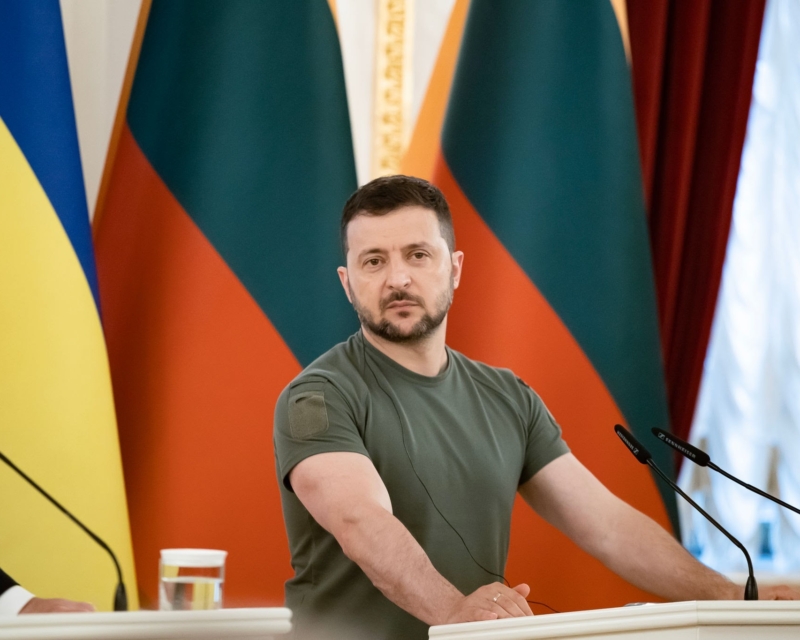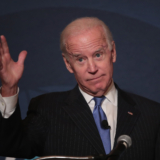Zelenskyy’s Plea for Aid Entwined in US Border Security Quagmire
As war and winter converge, Ukrainian President Volodymyr Zelenskyy’s quest for essential aid from the Western world faces an unexpected hurdle – the contentious issue of U.S. border security. President Joe Biden’s $106 billion aid package, encompassing support for Ukraine, Israel, and other critical needs, currently languishes in Congress, caught in the crossfire of political demands.
When Congress reconvenes this week, Biden’s aid request will take center stage, with the fate of military aid to Kyiv, support for Israel, and humanitarian assistance for Gaza hanging in the balance. The delay threatens to undermine America’s global standing in the midst of two wars.
Luke Coffey, a senior fellow at the Hudson Institute, expressed the urgency of the situation, stating, “We’re running out of money.” What was once overwhelming support for Ukraine’s democracy now devolves into a partisan struggle, with nearly half of the U.S. public believing the country is spending too much on aid to Ukraine.
Republicans, led by Senate Minority Leader Mitch McConnell, are demanding concessions in return for their support. McConnell insists that accepting border policy changes, specifically those aimed at curbing the influx of migrants across the U.S.-Mexico border, is the “best way” to ensure GOP backing for Ukraine.
A bipartisan group of senators has been meeting privately to find common ground on border policy changes. However, the proposed changes, including alterations to asylum laws and resuming border wall construction, are viewed as nonstarters by Democrats.
Senator Chris Murphy, a Democrat from Connecticut, expressed his frustration, stating, “I think it’s terrible that we’re in the position we’re in.” The ongoing border security talks are progressing slowly, with doubts about reaching a resolution.
Republicans, even those supportive of Ukraine, assert that substantial border policy changes are necessary for the aid to pass. Senator Tom Cotton from Arkansas emphasized the connection, saying, “If President Biden wants Ukraine aid to pass, we’re going to have to have substantial border policy changes.”
The White House has included approximately $14 billion for border security in its broader package, addressing concerns with more border patrol officers, detention facilities, and judges to process immigration cases.
With Pentagon funding for Ukraine rapidly diminishing and concerns about U.S. troop readiness growing, the need for financial support is becoming increasingly critical. Pentagon spokeswoman Sabrina Singh emphasized that the need for funding is growing “by the day.”
National security experts highlight the critical juncture for Ukraine, urging swift action. Democratic Senator Jack Reed of Rhode Island, chairman of the Senate Armed Services Committee, emphasized that Ukraine is at a critical point, with the Russians hoping the U.S. will give up and walk away.
Despite the potential inclusion of border security provisions, skepticism among Republicans regarding Biden’s commitment to supporting Ukraine is on the rise. Some Republicans, led by Representative Mike Garcia of California, are advocating for a separation of military funds from funds allocated to the Kyiv government, pushing for a clearer strategy for the war’s endgame.
As the situation unfolds, the plea from Zelenskyy’s chief of staff, Andriy Yermak, resonates, urging Americans to back Ukraine at this “historical moment for all of us.” The uncertain path forward underscores the complexity of intertwining domestic political issues with foreign policy decisions during a critical period in global affairs.






